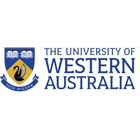Bachelor of Philosophy (Honours) – Anthropology
Bachelor of Philosophy (Honours) – Anthropology
Anthropology is the comparative study of human diversity, past and present. It examines behaviour, relationships and meaning within and between different societies and cultures. This major incorporates the study of key anthropological theories, and the history of the discipline, and introduces students to anthropological perspectives on religion and ritual, politics,…
Categories
COURSE DESCRIPTION
Anthropology is the comparative study of human diversity, past and present. It examines behaviour, relationships and meaning within and between different societies and cultures. This major incorporates the study of key anthropological theories, and the history of the discipline, and introduces students to anthropological perspectives on religion and ritual, politics, kinship and land rights, and ecology and environment.
Anthropology is the comparative study of human diversity, past and present. It examines behaviour, relationships and meaning within and between different societies and cultures.
Course Structure
Our undergraduate degrees offer you a broad range of options allowing you to combine subjects in a way that matches your career goals and personal interests.
Why study this course?
Only university in WA to offer Anthropology as a major.
Anthropology has a 50 year history at UWA.
There is a demand for Anthropologists in Australia and globally, especially in the fields of heritage, land rights, social and community development, food security and environmental protection.
You’ll learn to
demonstrate an understanding of key concepts in social and cultural anthropology. Understand anthropological perspectives on religion and ritual, politics, kinship and land rights, and ecology and environment.
critically review, analyse, summarise and synthesise anthropological research and theory using case studies from Australia and all over the world.
formulate, investigate and discuss anthropologically informed research questions and develop arguments based on a critical evaluation of written evidence and material culture.
explore how to communicate anthropological ideas, principles and knowledge to specialist and nonspecialist audiences using a range of formats (written, oral and visual).
Career Pathways
A degree in anthropology can lead to careers in areas such as:
Heritage sector including applied, legal and policy work
Community and international development and the broader health field
Non-government organisations – such as those working with Indigenous peoples, refugee and Culturally and Linguistically Diverse (CALD) communities, and environmental groups
Government and policy analysis
Museum and heritage sector
Cultural media
Social marketing, design and advertising
Global banking and finance
Further Study
Honours in Anthropology
Master of International Development
REQUIREMENTS
Entry requirements may vary from country to country. Students are required to complete an international academic qualification equivalent to Australian High School (or equivalent).
English language requirements:
IELTS (academic): Overall minimum score of 6.5, no band lower than 6.0
TOEFL Internet-based TOEFL (iBT): an overall score of 82 or above with a minimum score of 22 in writing, 18 in reading, 20 in speaking and 20 in listening
Pearsons Test of English (PTE) (academic): An overall score of 64 with a minimum score of 59 in the speaking and writing sections, and no less than 54 in the other sections
EDUCATIONAL INSTITUTION
The University of Western Australia (UWA) is a proud member of the Group of Eight and is the only university in Western Australia to be ranked in the world top 100 universities (QS World University Rankings 2023).UWA’s main campus is located in Perth, Western Australia and is home to more than 23,000 students. Perth is Australia’s fourth-largest city with over two million people from a variety of cultures worldwide, a strong economy and vibrant lifestyle. Perth is one of the country’s most affordable cities, the closest major Australian city to Asia, and in the same time zone as most of Asia.




